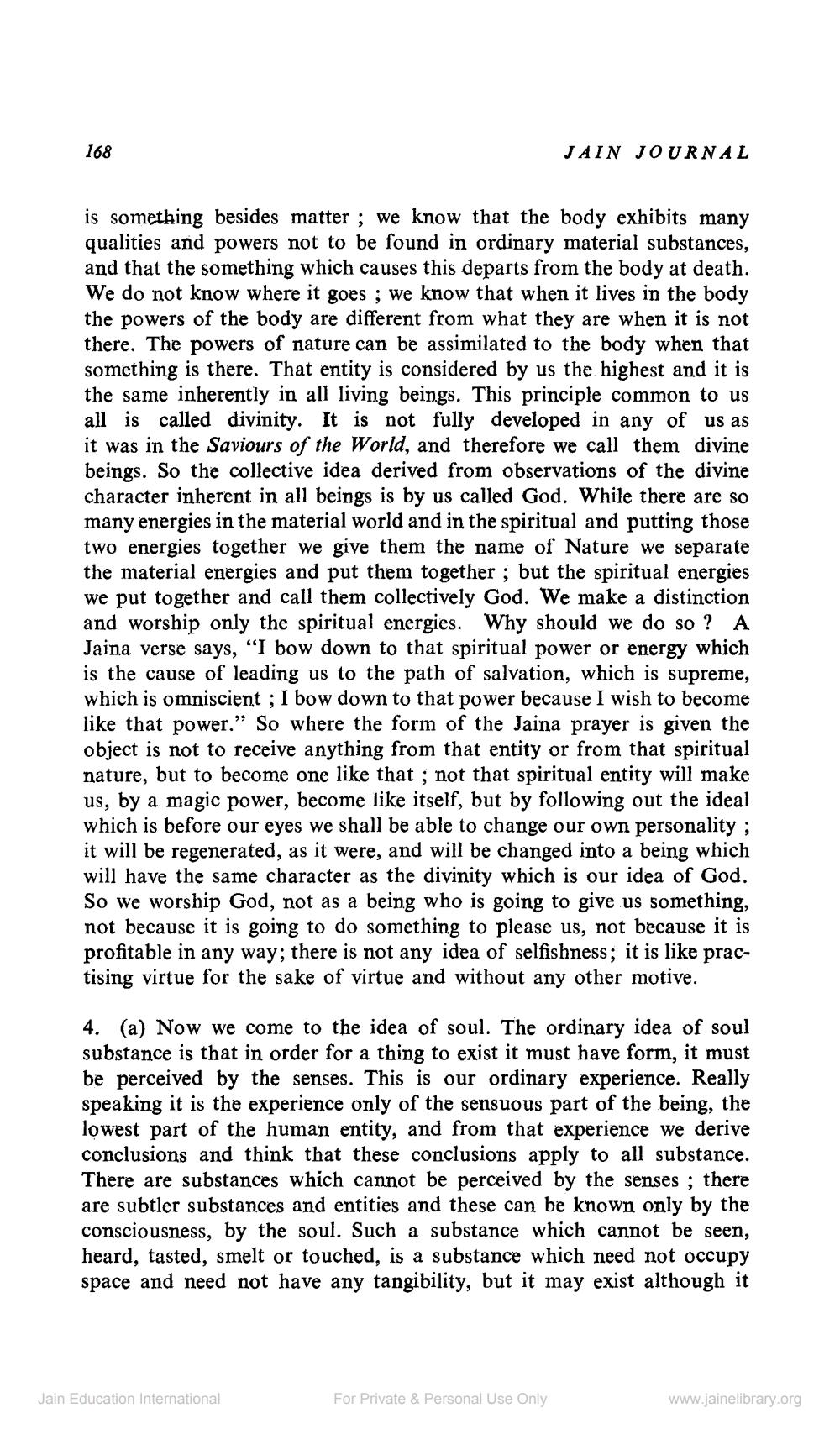________________
168
is something besides matter; we know that the body exhibits many qualities and powers not to be found in ordinary material substances, and that the something which causes this departs from the body at death. We do not know where it goes; we know that when it lives in the body the powers of the body are different from what they are when it is not there. The powers of nature can be assimilated to the body when that something is there. That entity is considered by us the highest and it is the same inherently in all living beings. This principle common to us all is called divinity. It is not fully developed in any of us as it was in the Saviours of the World, and therefore we call them divine beings. So the collective idea derived from observations of the divine character inherent in all beings is by us called God. While there are so many energies in the material world and in the spiritual and putting those two energies together we give them the name of Nature we separate the material energies and put them together; but the spiritual energies we put together and call them collectively God. We make a distinction and worship only the spiritual energies. Why should we do so? A Jaina verse says, "I bow down to that spiritual power or energy which is the cause of leading us to the path of salvation, which is supreme, which is omniscient; I bow down to that power because I wish to become like that power." So where the form of the Jaina prayer is given the object is not to receive anything from that entity or from that spiritual nature, but to become one like that; not that spiritual entity will make us, by a magic power, become like itself, but by following out the ideal which is before our eyes we shall be able to change our own personality; it will be regenerated, as it were, and will be changed into a being which will have the same character as the divinity which is our idea of God. So we worship God, not as a being who is going to give us something, not because it is going to do something to please us, not because it is profitable in any way; there is not any idea of selfishness; it is like practising virtue for the sake of virtue and without any other motive.
JAIN JOURNAL
4. (a) Now we come to the idea of soul. The ordinary idea of soul substance is that in order for a thing to exist it must have form, it must be perceived by the senses. This is our ordinary experience. Really speaking it is the experience only of the sensuous part of the being, the lowest part of the human entity, and from that experience we derive conclusions and think that these conclusions apply to all substance. There are substances which cannot be perceived by the senses; there are subtler substances and entities and these can be known only by the consciousness, by the soul. Such a substance which cannot be seen, heard, tasted, smelt or touched, is a substance which need not occupy space and need not have any tangibility, but it may exist although it
Jain Education International
For Private & Personal Use Only
www.jainelibrary.org




